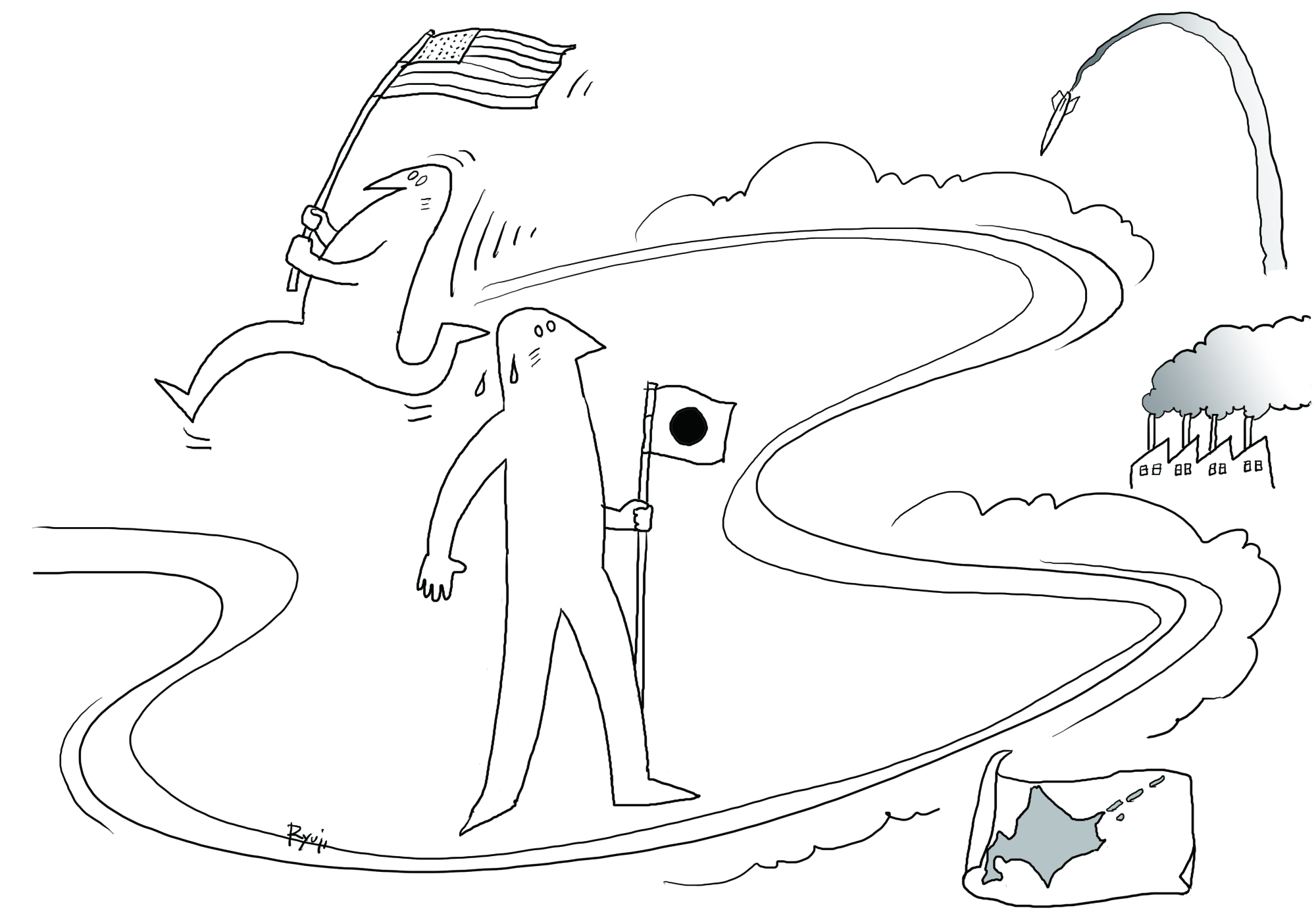Prime Minister Shinzo Abe's "diplomacy with a bird's eye view of the globe" is going nowhere. Despite its grandiose slogan, his diplomacy is in essence a strategy that depends entirely on the United States. But with the U.S. administration of President Donald Trump going astray and putting Western alliances at risk of falling apart, the Abe administration seems to be at a loss. While Abe has opened up two new fronts in his diplomacy — exploring conclusion of a formal peace treaty with Russia and seeking to improve ties with China — there is little or no hope that much can be achieved in these areas, either.
On North Korea, which poses the most pressing security threat to Japan, Abe has gone no further than repeating Trump's call for China to exert influence over Pyongyang, and has not been able to draw up a credible scenario of defending Japan against North Korea's nuclear and ballistic missile programs. As his dominant grip on power at home becomes shaky and domestic politics turn more inward-looking, Abe's diplomacy faces the risk of coming to an end without tangible accomplishments.
The Group of 20 summit held in Hamburg, Germany, in July appeared to shed light on the dearth of Japan's diplomatic presence. Abe's meeting with Russian President Vladimir Putin was supposed to become a highlight of his presence at the summit. But the start of their talks was delayed by 90 minutes because Putin's previous session with Trump lasted longer than scheduled, leaving little time for Abe and Putin to hold in-depth discussions.



















With your current subscription plan you can comment on stories. However, before writing your first comment, please create a display name in the Profile section of your subscriber account page.